How Jewish comedians are helping keep hope alive post-October 7
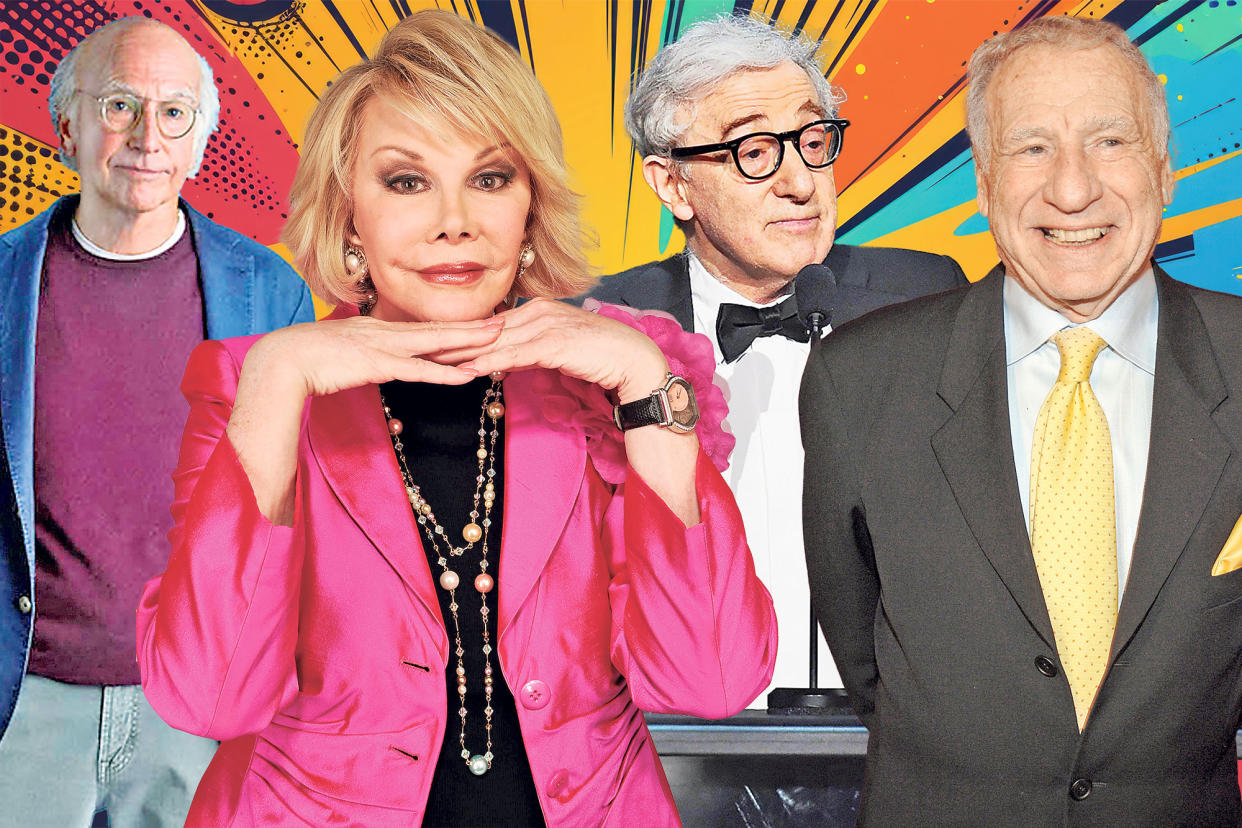
In the weeks following the Oct. 7 attack by Hamas on Israel, Elon Gold couldn’t feel funny.
How could the Jewish comedian, who normally performs almost every other night, crack jokes as he was still reeling from Hamas’ murderous rampage?
He summarily canceled shows and a moratorium on mirth took hold.

But then Gold realized he needed to take an alternative approach to surviving this “new normal” – and tap into the history of his people by channeling the unofficial 11th Jewish Commandment: let my people laugh.
“I had to get back to work,” said the LA-based Gold, best known for his standup and star turn on season 11 of “Curb Your Enthusiasm.” “And it was very challenging just trying to be funny, even today, knowing there are still hostages in Gaza. But at the same time, it’s my calling and I see it as a sort of healing of my people.”
And so Gold got back to work, including a recent show in Israel itself where Gold’s opening line – “It’s so good to be home,” followed by a beat, “with my fellow genocidal, apartheid colonizers” — was met with the relief and release the audience clearly craved.
Standing on the shoulders of generations of Jews before him, Gold understood his mandate: comedy exists not merely as a coping mechanism or even as healing, but as redemption itself.
The punchline is the Promised Land — along with the collective Jewish history of leaning into laughter.
To help folks of all faiths lean in, the YIVO Institute for Jewish Research in Manhattan, this week launches a new onine series, “Is Anything OK? The history of American Jewish Humor.”
The 13-hour, seven-session program features academics and comedians exploring topics ranging from the roots of Jewish humor in Eastern Europe to the Catskills and Borscht Belt comic resorts of Upstate New York to the impact of Jews shaping comedy in 20th century television and cinema.

Comedian Judy Gold, for instance, tackled “Covenants and Coping Mechanisms: Jewish Roots of Comedy,” and she joined funnymen Lewis Black and Alan Zweibel, who explored, “The Social Function of Jokes” in the YIVO series.
Other historians and academics include Judaic studies scholar Anita Norich, who aptly summed up the current climate: “Humor keeps the tragic in check.”
Humor has always been the secret weapon throughout Jewish history.
Now a new generation of Jewish comics have learned of its potency just as laughter is needed most.
Jokes, it seems, are the truest trees of life to those who dare to hold fast to them.
Indeed, just weeks after Hamas’s attack, Israel’s version of “Saturday Night Live,” called “Eretz Nehederet,” (A Wonderful Country) spoofed the media’s bias – and hypocrisy — of the events of Oct. 7.
A skit depicted a BBC News segment blaming the reported blast of a Gaza hospital on Israel, with the anchor nakedly instructing producers to notch up the death toll on the live chyron.
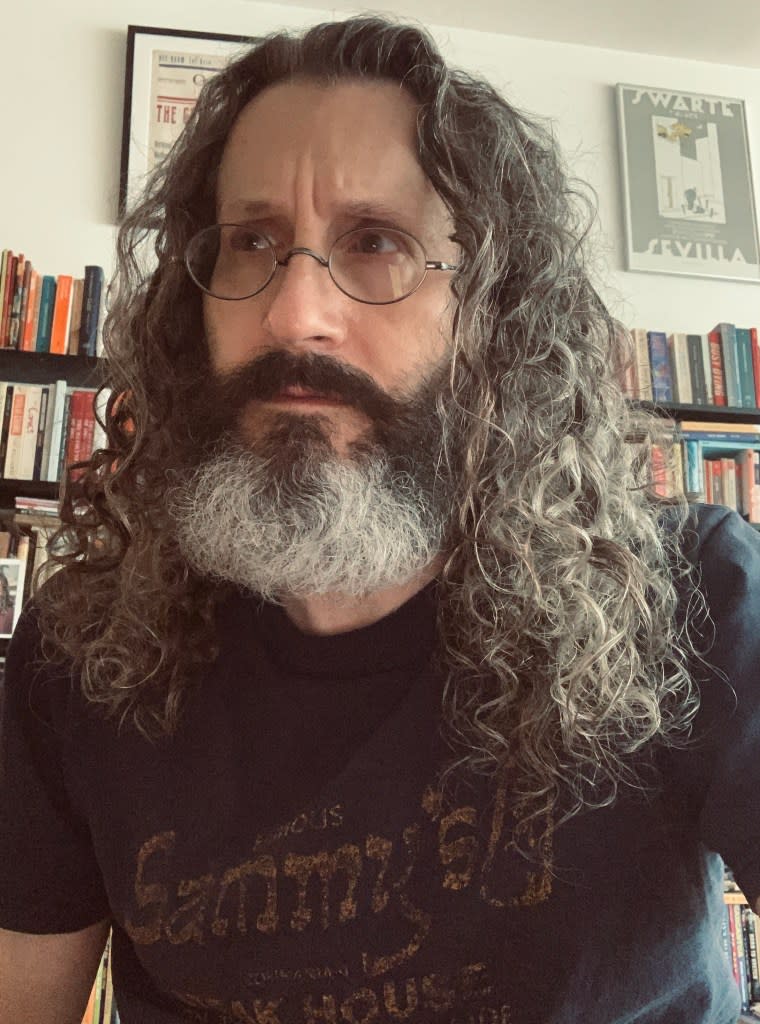
When Hamas “freedom fighters” admit that their misfired missiles, not Israel, were behind the blast, the stunned anchor still desperately scrambles to assign blame on Israel, as the “mystery” of the hit will be “one of those things we can never be sure about.”
The skit brilliantly satirizes the world’s framing of the conflict and its obsession with painting Jews as indiscriminate killers, even when there’s clear evidence to the contrary.
Barely two months later, the show’s Dec. 26 episode featured a cameo by “Stranger Things” actor Brett Gelman, who’s been canceled from some book tour dates after showing solidarity with Israel.
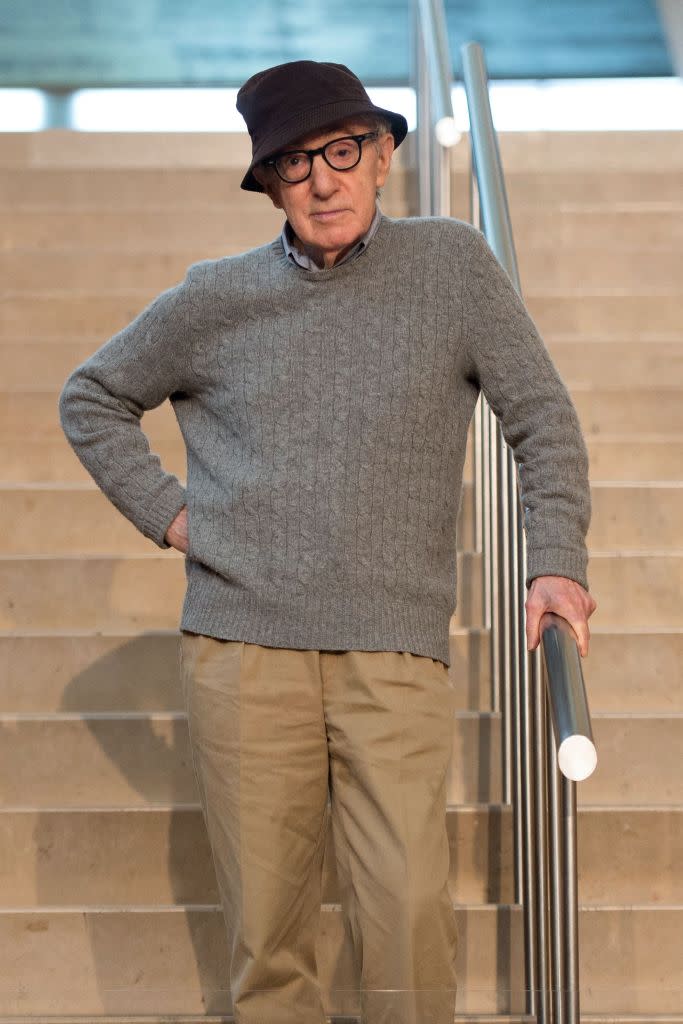
In the beginning, God created the heavens and the earth – and comedy.
Scholars have long argued that Jewish humor can be traced as far back as the Bible itself; Sarah named her first son, Yitzhak, or “he will laugh,” in Hebrew.
There’s been cursing rabbis and absurd stories ever since: In the Talmud; in 13th century parodies of the Passover haggadah; and via Middle Ages entertainers called a “badchen” – a precursor to the standup comedian, without the two-drink minimum.
Dubious jokes even made the rounds during the pogroms of Eastern Europe a century ago, albeit “very offensive – or they can be,” said Eddy Portnoy, an academic advisor at Yivo.
Sholem Aleichem, the renowned 19th-century Yiddish author whose short stories inspired “Fiddler on The Roof,” Portnoy recalled, “always said that Jewish humor is the phenomenon of laughter through tears.”

Matan Peretz, one of the most popular comedians in Israel, admitted to The Post that he still doesn’t “feel funny” some five months into the war in Gaza, but explained that humor is “a part of who I am and who we are as a Jewish people.”
After a recent stint serving in the army reserves, Peretz, 35, returned to his reflexive position – holding a mic on stage – in January, and fought on a different kind of frontline.
“I didn’t want to perform, but people were begging for us to come back. They needed a distraction, to feel like things are kind of back to normal.”
Peretz’s shows pointed out blatant double standards when it comes to Jews and global media and mocked protest groups such as “Queers for Palestine;” he suggested they visit Gaza and see what their version of tolerance looks like.
Such tropes helped the comedian “say what everyone else is thinking in the form of standup comedy. These jokes are writing themselves,” he said.
While performing can be ego-driven and self-gratifying, now “mending my people’s broken hearts feels like a higher calling,” he said.

What may be considered off-color to other cultures is very much on-brand for the Jews.
Humor, for Jews, is like a bulletproof vest.
Famed psychiatrist and Auschwitz survivor, Viktor Frankl, wrote of the concentration camps in his magnum opus, “Man’s Search for Meaning,” that people would be “astonished to hear that one could find a sense of humor there . . . of course, only the faint trace of one, and then only for a few seconds or minutes. Humor was another of the soul’s weapons in the fight for self-preservation.”
Harnessing humor was driven considerably as a “defense mechanism” throughout Jewish history, according to Dr. Chaya Ostrower, a pioneer in Holocaust humor research.
Ostrower is the author of the 2014 book, “It Kept Us Alive: Humor in the Holocaust” — translated from the original, and decidedly less upbeat, Hebrew title, “Without Humor We Would Have Committed Suicide.”
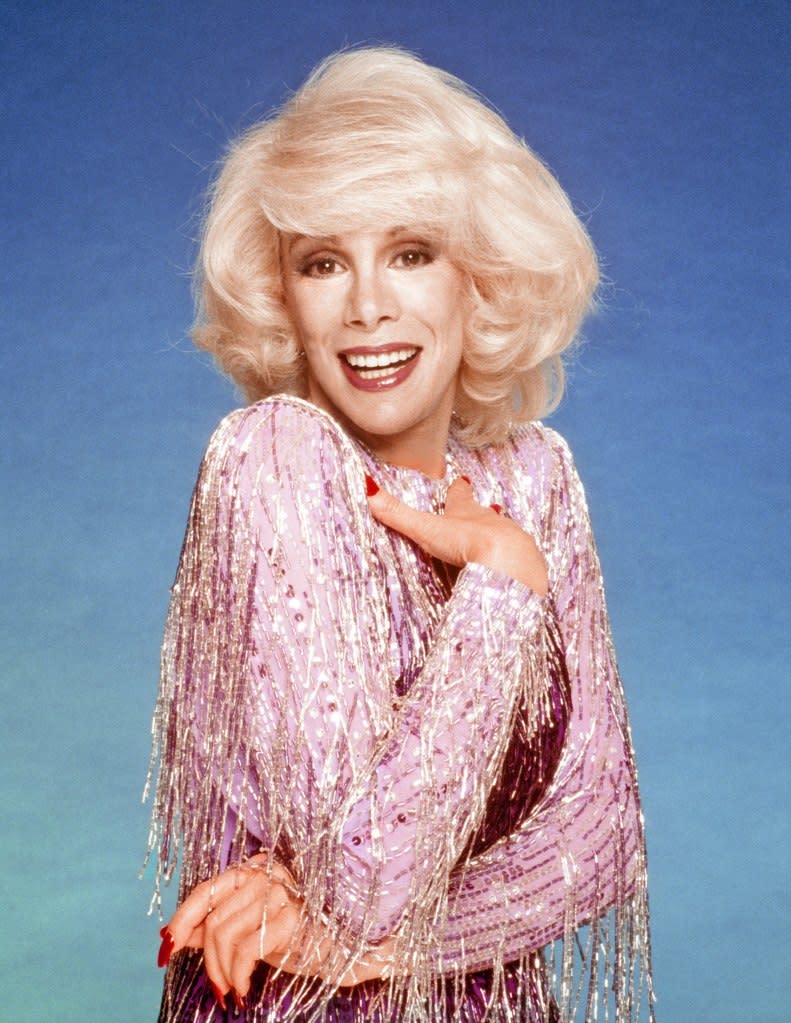
Even this blackest of historical chapters inspired black humor.
There were jokes about “free hairdos” sans their regular stylist and the conductor cracking down on those without proper tickets during cattle car transports to concentration camps.
“Look, without humor we would all have committed suicide. We made fun of everything. What I’m actually saying is that that helped us remain human, even under hard conditions,” one survivor told Ostrower.
Mel Brooks, who elevated black humor into the highest art form, maintained that his only weapon to fight back against the Nazis in the decades just after the War were jokes.
“The only way to get even with anybody is to ridicule them,” the WWII vet said in 2012. “So, the only real way I could get even with Hitler and company was to bring them down with laughter.”
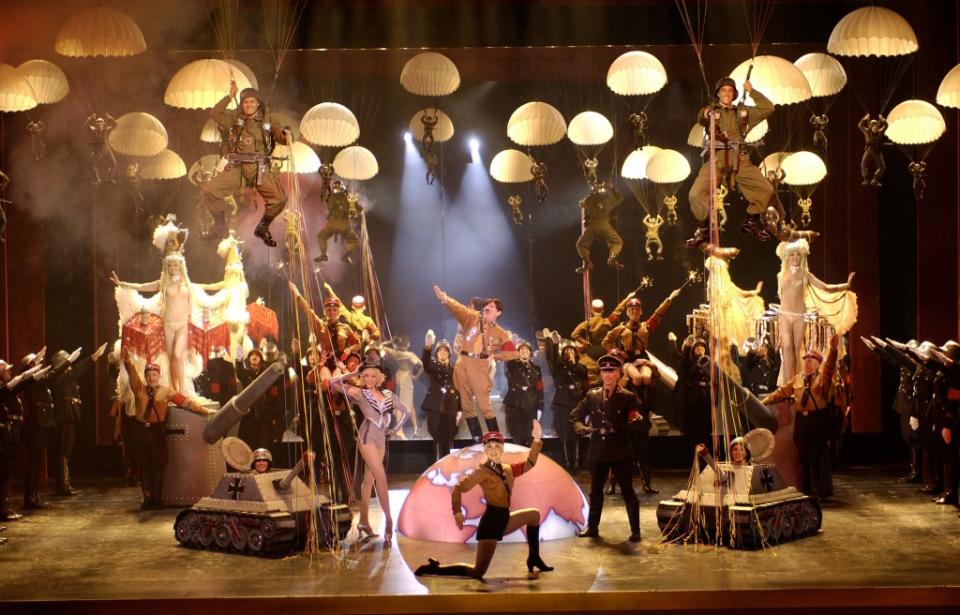
Brooks’ 1967 comedic movie phenomenon, “The Producers” is a perfect example of this phenomenon.
Through multiple stage and screen productions for the past half-century, this piece of art diminishes Hitler with humor.
It shows that not only did the Jews triumph – we triumphed and laughed.
Today — with antisemitic incidents up 337% in the US in the two-month period since Oct. 7, compared to the same period the year before, according to the Anti-Defamation League — laughing may feel impossible to many.
But that’s exactly when we need to apply humor where it (literally) hurts.
“Making jokes was the only way they could survive it made them feel like human beings,” said Judy Gold of the Holocaust survivors, though she could just as easily be speaking about the present moment.
No, not all comedy is born out of pain, but it is born out of truth, contended the comedienne.
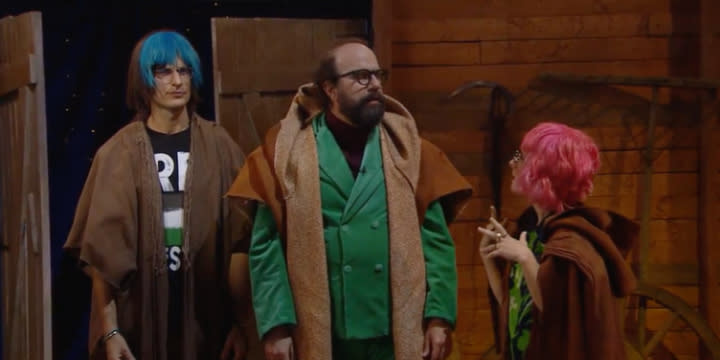
Of course Jews didn’t invent comedy — but we certainly had a considerable hand in shaping it in this country.
As the Yivo course demonstrates, the impact of Jews on American culture in the 20th century – from the Catskills golden age, to the creation of some of the most memorable TV and film properties, elevating self-deprecation to an art form from the likes of Woody Allen and Neil Simon — was born from a place of adversity, outsiderism, and pain.
We’re considered a light unto the nations, yes, but more importantly we’re a laugh unto the nations.
Jews show that we’re supposed to laugh at hard things — that’s how we get through them.
Peretz noted that it’s the pain that fuels the funny, which makes it very Jewish. “Comedy and tragedy is who we are as a people. The reason the Jews are funny is because we’ve been through so much – we can’t have one without the other.”

